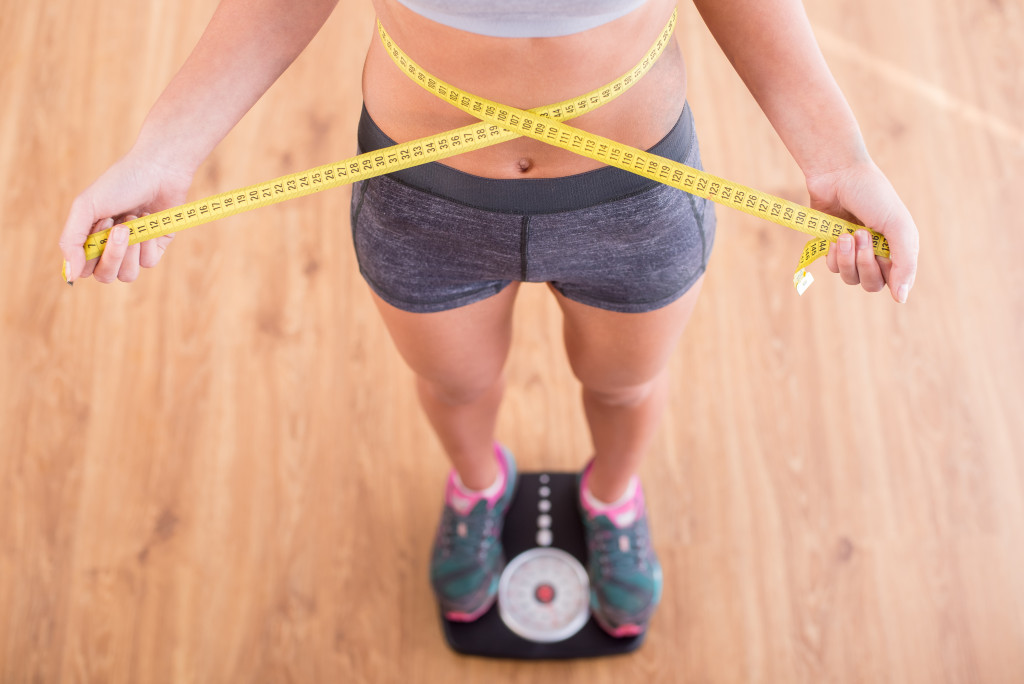Obesity and being overweight are major health concerns in the United States. According to the CDC, approximately 35% of adults aged 20 years or older are obese, and 34% are overweight. Moreover, obesity and overweight rates have increased significantly in recent decades, with more than 1/3 of all US adults currently considered obese.
Many factors contribute to obesity and being overweight in the US. Factors such as poor diet, lack of exercise, genetic predisposition, certain medications, and environmental factors can all play weight gain. Additionally, socioeconomic status also affects obesity rates – people living at or below the poverty level are twice as likely to be obese as those who live above the poverty level.
The most important thing that people should watch is their diet. What you eat is very important in maintaining a healthy weight. But the question is, should you go on a diet?
What is Diet?
The word “diet” can mean different things to different people. For some, a diet is a temporary food plan that helps them lose weight for an upcoming event such as a wedding or vacation. For others, a diet is a long-term way of eating that includes permanent changes to the types and amounts of foods.
Regardless of your definition of diet, there is a common misconception regarding the term. Some people relate diet to starving or not eating. This is not the case. A diet means consuming the suitable types and amounts of foods to maintain a healthy weight, get necessary nutrients, and reduce your risk for chronic diseases such as heart disease, stroke, and diabetes.
When Should You Go on a Diet?
There is no one right answer to this question, as it depends on your circumstances. If you are obese or overweight and want to prevent weight-related health problems such as heart disease and diabetes, it may be good to go on a diet.
That said, there are some people who should not follow a strict diet plan. For example, if you are pregnant or breastfeeding, have certain medical conditions that require special diets (such as celiac disease), or have an eating disorder such as anorexia nervosa or bulimia, talk with your doctor about the best way to lose weight would be recommended.

What Are the Different Types of Diets?
There are many different types of diets out there. However, here are some of the most popular ones:
- Low-Fat Diet: This diet restricts fat intake and emphasizes eating foods high in carbohydrates and protein.
- Low-Carbohydrate Diet: This diet limits carbohydrate intake and emphasizes eating foods high in fat and protein.
- Mediterranean Diet: This diet is based on the traditional cuisine of countries bordering the Mediterranean Sea and includes lots of fruits, vegetables, whole grains, fish, olive oil, and moderate amounts of wine.
- Vegetarian Diet: This diet excludes meat and poultry but includes eggs, dairy, and plant-based proteins.
- Vegan Diet: This diet excludes all animal products, including meat, poultry, eggs, dairy, and honey.
There are also many other specialized diets, such as the ketogenic diet, Atkins diet, Paleo diet, and more. Talk with your doctor about which type of diet would be best for you.
How to Get Started on a Diet?
Visit a Dietician
The best way to start a diet is by talking with your doctor or a registered dietitian. They can help you create a realistic and safe plan that fits your lifestyle and individual needs.
When creating your diet plan, focus on making permanent changes to your eating habits rather than just trying to lose weight quickly. Also, keep in mind that some diets (such as the Atkins Diet, South Beach Diet, and Grapefruit Diet) are not usually sustainable or safe in the long term.
Ensure You Have Good Dental Health
You might ask yourself why good dental health matters. Well, you can’t go on a diet if you don’t have good teeth! This is because you can’t digest your food properly without your grinders. So if you lack teeth or have hypodontia, make sure that you get dental implants before going on a diet. Good implants will ensure that you can digest your food properly.
Start Exercising
Exercise is an important part of any weight-loss plan. Not only does it help burn calories, but it also helps build muscle, which can boost your metabolism. Talk with your doctor about how much exercise you should be getting based on your individual needs and fitness level.
Set Realistic Goals
When starting a diet, it is important to set realistic goals. Having realistic goals means thinking about what you can realistically achieve in the short-term and long-term. For example, if you are overweight, your goal may be to lose 5% of your body weight over the course of 6 months. Or, if you are obese, your goal may be to lose 10% of your body weight over the course of 1 year. Be sure to talk with your doctor about the best goals for you.
It is important to talk with your doctor before starting any diet. They can help you create a realistic and safe plan that fits your lifestyle and individual needs. Be sure to focus on making permanent changes to your eating habits rather than just trying to lose weight quickly. Also, keep in mind that some diets may not be sustainable or safe in the long term. Set realistic goals for yourself and exercise regularly to boost your metabolism. With a healthy diet and lifestyle, you can achieve your weight-loss goals!


